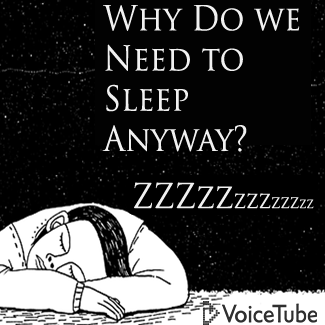Why do we need to sleep at all?
Sleep has tons of benefits
How and why we sleep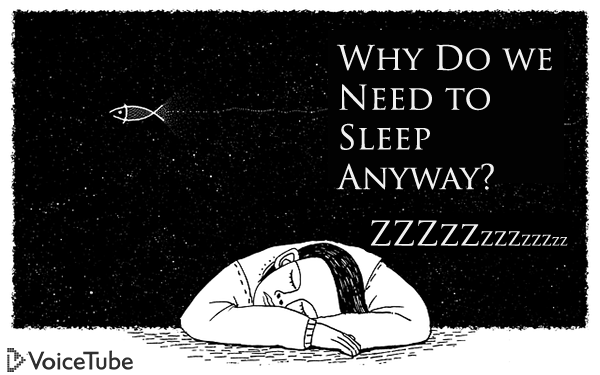
Introduction
Have you ever wanted to know why we sleep or why we dream? Do you want to know what happens if you don’t sleep or why you shouldn’t take sleep medication? Matthew Walker’s incredible book Why We Sleep answers these questions and many, many more, I have just finished reading it, and I cannot stop thinking about it or talking about it. This blog will summarize just the first section of his book, which is called “This Thing Called Sleep.” For more information, I recommend you read the book. My friend and I will also be covering all four sections of this book in our podcast The Pixel Meditations in just a couple of weeks, so be sure to give us a listen.
Why We Sleep and Who Sleeps
Firstly, every living creature sleeps. Fish sleep, birds sleep, and even plants sleep. It is a vital(1) function of all life on Earth. Some birds and aquatic mammals—such as whales and dolphins—can actually sleep with half of their brain while using their other half to navigate during flight or while swimming beneath the ocean.
Why do we sleep? That is a good question. When we sleep, we cannot eat food. We cannot socialize or reproduce, and we can’t escape from predators. So, why do we sleep at all? Walker says, “sleep is the single most effective thing we can do to reset our brain and body health each day.” (Walker, Why We Sleep). Sleep helps us learn, memorize facts, and balance our logic and emotions in order to make important decisions throughout the day.
If we don’t get enough sleep, we cannot control our emotions, we are less productive, and we lose more of the information that we learned or processed during the previous day (and likely beyond that day). On top of that, we are more likely to get sick due to a weakened immune system(2), and we are more at risk of catching a deadly disease like cancer. Not getting a full eight hours of sleep literally will slowly kill us.
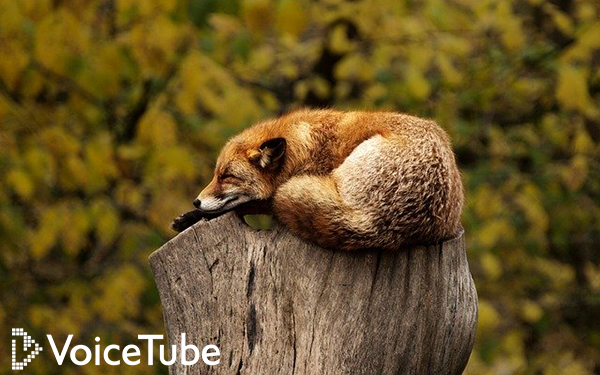
Our Natural Rhythm
One day might be 24 hours, but our bodies run on a biological time called “circadian rhythm.”(3) Our bodies don’t need the sun or the moon to know what time of day it is. There was one study where two people slept in a cave with no light for 32 days. Both of them slept for about eight to nine hours a day and still woke up and went to bed around the same time as they would if they had been at home safe and sound in their own beds.
It turns out that 40% of the population are “morning types,” people who naturally wake up at around dawn. Thirty percent are “evening types,” who naturally wake up later in the morning and stay up later at night. The remaining 30% of the population will rest somewhere in between.
The issue is that society runs on a schedule that is beneficial(4) for morning types but robs evening types of their natural rhythms and their ability to get enough rest. We criticize people for being lazy and wanting to sleep too much, but in reality, we are all at the whim(5) of our circadian rhythms and our own biological clocks.
To Coffee or Not to Coffee?
If you’re like me, you probably wake up looking forward to that morning cup of coffee, but I almost never drink an afternoon cup of coffee anymore, and sleep is a huge part of the reason why.
You see, there is a chemical in our body called adenosine, which slowly builds up throughout the day. In the morning, we have very low concentrations(6) in our body, but after being awake for 12-16 hours, there will be a much higher concentration–and the only way to lower it is to sleep. The job of this chemical is to make us feel tired and to get us to fall asleep in order to maintain good health.
When we drink coffee, it mutes the adenosine in our body, allowing us to feel awake until the effects of the caffeine wear off. However, even as the caffeine is making us feel alert, the adenosine is increasing. This loss of caffeine and the return of the muted adenosine is what causes the infamous caffeine crash; it’s why we feel exhausted after drinking too much caffeine.
Lastly, caffeine effects last for an average of five to seven hours. Some people can process caffeine faster, but most people will fall into this range, even if they don’t feel it. This caffeine, of course, makes it much harder to fall asleep, so it might be a good idea to skip that second or third cup of coffee.
The Sleep Cycle
There is NREM sleep and REM sleep. The first half of our sleep is typically consumed with 90-minute cycles of NREM sleep with just a little bit of REM sleep. The second half of the night is filled with more REM sleep with very little NREM sleep.
The NREM sleep phase is used more to move information in our brain and to delete unnecessary information. The REM sleep phase, on the other hand, is when we dream, and it’s this phase that connects the information that has been saved and stored in our brains from the NREM sleep cycle.
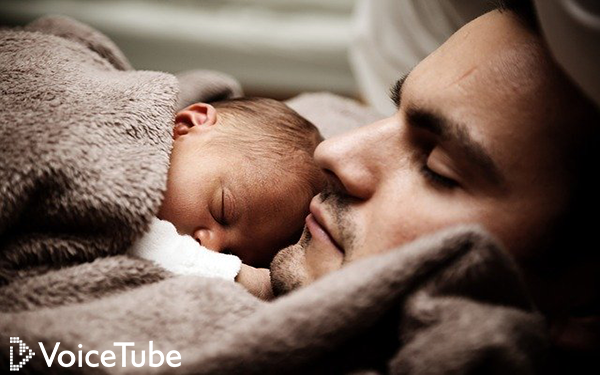
Both stages of sleep are extremely important! Cutting sleep short will destroy one of these cycles, damage your mental health, and harm your ability to function properly.
Sleep Over the Course of Our Lives
It might not surprise you to learn that children typically sleep longer but wake up earlier than adults. Their circadian rhythms naturally send them to bed in the late evening and awaken them around dawn.
The biggest surprise might come from teenagers, though. Teenagers’ circadian rhythms shift(7) later than both children and most adults. They naturally want to stay up later at night and want to sleep in later than their parents. One hypothesis(8) is that this time away from adults later at night might allow them a chance to become more independent and learn how to take care of themselves without their parents constantly watching over them.
Sadly, school times don’t usually reflect their sleep cycles, so teenagers often get inadequate sleep due to something they have no control over. This can make them more angsty, hinder their ability to learn more efficiently, and make them less able to memorize facts. It can also make them less sociable. Yikes!
Adults’ circadian rhythms will fall back once again and allow them to both sleep and wake up earlier than teenagers . . . until old age. Old people have a circadian rhythm that is closer to that of children, which is why they tend to wake up so early.
What Happens When You Go To Sleep Drunk?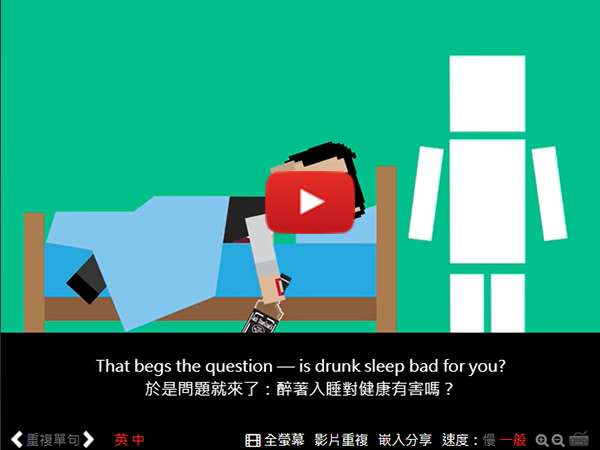
It’s important to remember that everyone’s circadian rhythm may be slightly different. While these sleep trends occur in all of us throughout our lives, some will be able to wake up earlier than others. Even a 30-minute difference in our biological clocks could make a huge difference.
Conclusion
This book is so loaded with good science and information that it would be impossible for me to properly(9) summarize even its first section in a single blog. I highly recommend you read this book; or at the very least, try to take getting a full night of sleep more seriously. A lot of what we learn about sleep in modern-day society is misinformation(10), so it’s worth it to hear what science says about an activity that takes up roughly one-third of our lives.
See what others said about the book here!
Vocabulary
1. vital (adj.)
Def. necessary or essential for something to succeed or exist
Ex. Drinking water while exercising is vital to keeping your energy up.
2. immune system (n.)
Def. the system in your body that produces substances to help it fight against infection and disease
Ex. You drank too much alcohol last week! That is why your immune system is so weak.
3. circadian rhythm (n.)
Def. connected with the changes in the bodies of people or animals over each period of 24 hours
Ex. My circadian rhythm is so messed up because of jet lag.
4. beneficial (adj.)
Def. improving a situation; having a helpful or useful effect
Ex. Stop working! I think taking a break will be beneficial to your mental health.
5. whim (n.)
Def. a sudden wish to do or have something, especially when it is something unusual or unnecessary
Ex. She bought the iPhone 11 off of Amazon on a whim.
6. concentration (n.)
Def. the proportional amount of a substance or item in a liquid, other substance, or place
Ex. Antarctica has the world’s highest concentration of penguins.
7. shift (v.)
Def. to change from one state, position, etc., to another
Ex. His opinion on global warming shifted after listening to the students talk about how they wanted to live on a clean Earth.
8. properly (adv.)
Def. in a way that is correct and/or appropriate
Ex. In order to study properly, you need to get a full night of sleep the night before.
9. misinformation (n.)
Def. wrong information that is given about some topic
Ex. The government spread a lot of misinformation so that people wouldn’t question the war.
Source
Walker, Matthew P. Why We Sleep: Unlocking the Power of Sleep and Dreams. Scribner, an Imprint of Simon & Schuster, Inc., 2018.
Photos
fairy-tale-night-music-fish-sky by cdd20
